Rich fossil fuel states blocked real solutions at COP27, but what needs to be done is well known. People need to organize and elect candidates with a green agenda. Robert Pollin joins Paul Jay on theAnalysis.news.
Paul Jay
Welcome to theAnalysis.news. In a few seconds, I’ll be back with Bob Pollin. We’re going to continue our conversation, this time focusing on the great achievements of COP 27, and of course, I’m saying that with as much ridicule– was that the word or sarcasm; I don’t know. Anyway, be back in just a few seconds with Bob Pollin. Please don’t forget the donate button at the top of the web page.
So, a few days ago, COP 27 in Egypt came to a conclusion, and it did not come to much resolution on the issue of how to reduce carbon emissions.
Now, joining us is Bob Pollin. He’s the co-chair of the PERI Institute in Amherst, Massachusetts, associated with the University of Massachusetts in Amherst. Thanks for joining us again, Bob.
Robert Pollin
Really happy to be on. Thank you, Paul.
Paul Jay
So, what the hell is in these people’s heads? You have the leaders of the world, and you have; I don’t know how many millions and millions of dollars were spent organizing and attending this conference, but the elites of the world seemed to have come to a conclusion. Yes, we’ll put a little bit of money into some of the countries that are going to get destroyed and flooded sooner than later or torched by droughts, but we are not going to do anything serious that will prevent the world from passing 1.5 degrees warming within less than a decade. Meaning we are on the road to 2 degrees warming, I don’t know, certainly by 2050, and the way things are going, it could be sooner than that. Given all the tipping points, I just saw this documentary of nine critical tipping points, any one of which triggers the other tipping points. This could come well before 2050, when we’re really out of control here, meaning we’re headed towards 3 degrees, even 4 degrees.
Right now, people, after this interview, go on Google and look for a heat map of what the world looks like at 4 degrees. I’m living in Toronto right now. If I head three hours north, we might be able to grow mangoes in a while, except there probably won’t be much water to do it with. At any rate, Bob, what the hell is in these people’s heads? It’s like they’ve decided we’ll mitigate it a bit, but we’re not going to do what it takes to deal with it.
Robert Pollin
Well, in fairness, the people that are blocking any progress are the oil-rich countries. They simply will not tolerate any kind of, even rhetoric, even words on paper that say we have to cut back on the consumption of fossil fuels, even though everybody knows fossil fuel, burning oil, coal, and natural gas to produce energy, generates something like 75% to 80% of all greenhouse gases. There are other factors causing climate change, but overwhelmingly, the number one cause is burning oil, coal, and natural gas to produce energy.
Now, burning oil, coal, and natural gas to produce energy also generates massive profits for the people, the companies, and public and private companies that own these assets, and they have no intention of relinquishing their profits. That’s what’s behind the whole thing.
Paul Jay
I know in the Canadian delegation to COP 27, if I understood this article I was reading correctly, a fair number of the Canadian delegation were actually from the Canadian fossil fuel companies. They’re part of the formal delegation. I think that went right throughout the conference. The fossil fuel industry was involved in all the discussions, and they’re funding– how much of the various leading governments are funded through either direct political contributions or otherwise?
I think we should also add this isn’t like about, quote-unquote, “fossil fuel companies,” as such. If you look at who owns fossil fuel companies, on the whole, in the United States but also elsewhere, it’s the financial sector. It’s Wall Street. If the financial sector wanted a change in this kind of policy, the main asset management companies: BlackRock, Vanguard, State Street, and a few of these others, they’re the biggest investors in the fossil fuel companies, and they have votes that appoint much of the boards of these companies. The finance sector could do something about it, but they don’t either, and it’s not like they don’t get the nature of the danger. You have Larry Fink at BlackRock, who goes on and on about how dangerous it is, but they don’t do anything about it.
Robert Pollin
Well, let’s keep in mind that 90% of all fossil fuel assets are owned by public enterprises. So when we’re talking about the Saudi state, we’re talking about Russia, we’re talking about Brazil, we’re talking about Indonesia, and we’re talking about China. Yes, the private assets, just like any other publicly owned corporation, they’re controlled by their Wall Street investors, but the publicly owned companies are not. Nevertheless, the publicly owned companies are behaving in the same way, equally as aggressive, because they don’t want to lose those revenues from producing oil, coal, and natural gas to produce energy.
So that’s really where we are, and that’s why it’s gotten to the point where these meetings are a joke because these countries have veto power over any final document, and they’re going to veto anything that says we have to contract fossil fuel consumption.
Now, they have an answer. It’s disingenuous, but they have an answer. They say, “oh, yes, we are just as concerned as everybody else about climate change, and the answer is to introduce so-called carbon capture technology.” Carbon capture technology, in principle, is a way through which you still burn oil, coal, and natural gas, but you have the machinery that literally captures the carbon before it enters the atmosphere and buries it underground permanently. The fact is that technology has never been proven at a commercial scale, much less a worldwide commercial scale. Nevertheless, that’s the answer that they’re giving. Let’s keep maintaining our fossil fuel production and consumption but let’s use carbon capture technology to address the climate crisis.
Paul Jay
What I don’t understand, as much as I– you know, in the last interview we did, I said, Dan Ellsberg calls nuclear war, nuclear weapons policy in the United States and other countries “institutional madness.” The climate policy in the U.S. and other countries is another form of “institutional madness.” As much as I get how profit drives that madness because it’s not like there’s not a logic to it– the logic is, let’s make as much money as we can today and to hell with tomorrow. I can’t understand how they can’t just at least agree to plant a gazillion trees. I think it’s clear that it’s not enough just to plant a gazillion trees. You’ve got to regulate off fossil fuel and into sustainable energy. Even if you did that, you still have to get more carbon out of the air. The simplest, natural, safest way to do it is to plant a gazillion trees, which is another way to create jobs and whatever, but they don’t even have an international agreement on that.
Robert Pollin
Yeah, that’s true. So [Luiz Inácio] Lula [da Silva] getting elected in Brazil as president was a major step forward in terms of carbon capture through trees because Lula is committed to protecting the Amazon, whereas his opponent [Jair] Bolsonaro was committed to chopping down all the trees in the Amazon and destroying the capacity of trees to absorb carbon. Planting the trees is a really valuable measure, but it only gets us about 10% of where we need to go. If we don’t stop burning fossil fuels, we can plant a gazillion trees, and we’ll still have a climate crisis.
Paul Jay
Yeah, no doubt about that. I’m just saying that would be something relatively easy. They don’t even agree on that, even though there’s no question that ‘that’ is not enough, but it’s something. It would even be good on the PR side. Look, we’ve had a global agreement to plant trees. They don’t even do that because I guess somehow that’s acknowledging the problem if you do that and they don’t even really want to acknowledge the problem.
Robert Pollin
Well, that’s where we are. Again, I think just what I read coming out of the conference is that they want to say, “burn fossil fuels and let’s develop carbon capture technology so that we can keep burning fossil fuels indefinitely, forever, and into the future.”
Let’s just say that, okay, you know what, in 50 years, maybe that can be a viable solution. Maybe in 50 years. But we know that we have to be at zero emissions by 2050. There’s no way in which a carbon capture program is going to be adequate to doing anything about the magnitude of the crisis now. So they’re just playing with rhetoric.
As it is, carbon capture technology, as I understand it and talking to a lot of energy engineers, really has no hope of being effective. Number one, because of the storage issue. Literally, you’re going to store the world’s carbon underground forever. We are going to assume no leaks, and we’re going to assume that we’re going to keep finding these crevices underground in order to store them. None of this stuff has been worked out at all. So it’s no solution. Anyone who has minimal knowledge of these issues has to know that’s true.
Nevertheless, just the story I was reading this morning, that’s what they say. “Burn fossil fuels, but advance carbon capture.”
Paul Jay
It still permeates the policy of the Democratic Party and the Biden administration. Even though this last bill was better than anything before it in terms of putting money into some transition, it’s still permeated with carbon capture underlying policy.
Robert Pollin
Money in the Inflation Reduction Act, carbon capture is a major target for support. It’s not the only one, but it is big in that bill, the one that just passed some months ago.
Paul Jay
People watching this are saying, okay, this is also depressing, but there is something people can do about it. I would say when it comes to primarying candidates in the Democratic Party, but even in the Republican Party, there’s no reason not to go there too and take this conversation there. There’s lots of polling that shows there’s a significant, maybe as much as 20% or more of people that identify as conservative Republicans who do consider the climate crisis a serious, urgent issue. Don’t vote for anybody that doesn’t put climate front and center in their election campaign. Even this last campaign, you hardly heard this, and I don’t understand it. Why weren’t the Dems making an issue of don’t elect climate science deniers? There’s tons of polling that would actually work for them.
Robert Pollin
Yeah, and you know, you could also make other arguments. In Republican states, in the Great Plain States, the Dakotas, and Nebraska, here’s a good argument. Let’s build up our renewable energy sector and put solar panels and wind turbines on farms. You can do it without reducing agricultural productivity, but it generates an extra source of income for the farmers. So let’s subsidize that, and let’s help our farmers. That’s taking money away from the fossil fuel companies and putting it in the hands of farmers. As it happens, there’s more electricity being generated from wind turbines in the Republican Great Plain States than anywhere else in the country right now.
Paul Jay
People who watch theAnalysis know I’m living in Toronto now, although I lived in the U.S. for quite a few years. We had an election here recently, and I happened to be in a district where the Conservative Party can’t elect in the riding I’m in. There’s a competition between a Green Party candidate, an NDP candidate, and a Liberal Party who all claim to have a concern about climate.
They came to the door, and they had come to talk to me. I’d say, “I only care about one thing. Tell me your climate policy.” “Oh, we care about green, and we want to do this.” “Okay, yeah, but what exactly is it you support? What is the policy?” Neither one of them really gave a concrete measure for what the Ontario government could do. The Ontario government has a lot of power, but provinces can do a lot. Nobody had a concrete, so I told all of them, “well, I’m not going to vote for any of you.” Finally, I picked one because I picked one that actually had a little better climate platform. I think people should just stop– at least at the primary level– if you’re not in a swing state, you don’t vote for anybody that doesn’t have a climate plan, a serious climate plan.
There are books like the one Bob’s done with Noam Chomsky, and there are others that lay out what a real program looks like. If your candidates aren’t espousing that, then the hell with them. Don’t support them, and make it clear. Don’t let the Dems run on campaigns that don’t feature climate policy.
Robert Pollin
Fair enough. Sounds good. I agree.
Paul Jay
There’s your book. What are other good resources? I know you’ve done a lot of work on a just transition, which I think is a very important concept, especially when you’re talking to people in fossil fuel states.
Robert Pollin
Yeah, well, I mean, a just transition, really the way I’ve written about it and researched it is really about addressing the fact that if we are going to contract the fossil fuel industry down to zero, which we have to, there will be workers and communities that will be hurt. Not just the shareholders of the companies but the workers and communities. So we have to address that by creating alternative job opportunities for workers, making sure their pensions are protected, and giving them support as needed with respect to any kind of retraining or relocation. So those are the key features.
In some of the studies that I’ve done, I cost that out. It’s really not that much, and the reason being is not that many– if we look at coal, for example, there’s only in the U.S., there’s a total of 60,000 people employed in the entire coal industry in the United States. This is in a labor market of 164,000,000. So it’s really actually quite easy to come up with a just transition for the workers. Not just the miners but anyone who’s employed in the industry. Then in terms of finding alternative employment opportunities and for the communities, well, let’s think about investing the renewable energy in those communities.
One of the studies I did was for the state of West Virginia– it’s the most coal-dependent state in the United States. What we tried to show, and I think we laid out fairly well, is that West Virginia would benefit hugely from starting its green transition right now.
Paul Jay
So go to the website for the PERI Institute. There’s a lot of research there about what concrete plans look like for a just transition, for transitioning the economy. You can search– lots of NGOs and climate organizations have bullet points of what should be done and simply get organized. Like get ten people together, get 15 people together. Talk about how in whatever riding, congressional district, wherever you are, you’re going to vote based on climate criteria. No candidate is going to get your support without that.
I should say, again, the fight can be waged in the Republican Party, too. Among evangelicals, there’s pretty good evidence that maybe 20-25% of evangelical Christians think the climate crisis is a serious high priority. I don’t understand the reluctance of the Democratic Party not to bring this to the fore other than the leadership, corporate leadership of the Democratic Party is afraid of pissing off the fossil fuel companies, and they’re going to put all their money into Republicans. There have certainly been lots of places where progressives are winning in various places by using green New Deal structures or rhetoric or language or some form of it. So anyway, that’s my last rant. I give one last rant to you, Bob.
Robert Pollin
I share your rant. I’ve said this, I think, a couple of times. I mean, we did a study for the state of California on a green transition and a just transition for workers and communities. That study was endorsed by over 20 unions in California, including the union that represents the oil refinery workers. So this was really a major breakthrough that the oil refinery workers in California are enlightened and they are committed to a green transition as long as they are taken care of fairly.
I had a similar experience in doing the work in West Virginia. There was no hostility on the part of the minors union and the overall union movement as long as there was a just transition, a serious just transition. So that has to be absolutely front and center, integral to the overall green New Deal.
Paul Jay
Alright, thanks for joining us again, Bob.
Robert Pollin
Okay, thank you.
Paul Jay
Thank you for joining us on theAnalysis.news. Please don’t forget, when you’re considering your year-end donations, to keep us in mind. Go to the webpage theAnalysis.news. There’s a donate button at the top of the page. Make sure you get on the email list. And if you’re on all the various podcast platforms that we’re on or if you’re on YouTube, subscribe so you find out when we have news stories. Thanks again for joining us on theAnalysis.news.
Paul Jay
Hola. Bienvenido a theAnalysis.news.
En unos segundos, estaré de regreso con Bob Pollin. Vamos a continuar nuestra conversación, esta vez centrándonos en los grandes logros de la COP 27. Y claro, lo digo con todo el ridículo… ¿Es esa la palabra, o sarcasmo…? No sé. Sea como sea, volveré en unos segundos con Bob Pollin.
No olvide el botón Donar en la parte superior de la página web.
Entonces, hace unos días finalizó la COP 27 en Egipto, y no llegó a una resolución óptima sobre el tema de cómo reducir las emisiones de carbono.
Ahora se une a nosotros Bob Pollin. Es copresidente del Instituto Perry en Amherst, Massachusetts, asociado con la Universidad de Massachusetts en Amherst. Gracias por acompañarnos de nuevo, Bob.
Robert Pollin
Realmente feliz de estar aquí. Gracias, Paul.
Paul Jay
Entonces, ¿qué diablos está pensando esta gente? Tienes a los líderes del mundo, tienes… No sé cuántos millones y millones de dólares se gastaron para organizar, para asistir a esta conferencia, pero las élites del mundo parecían haber llegado a una conclusión: “Sí, donaremos algo de dinero a algunos de los países que van a ser destruidos e inundados, más temprano que tarde, o devastados por sequías, pero no vamos a hacer nada serio para impedir que el mundo pase de 1,5 grados de calentamiento en menos de una década”. Lo que significa que estamos abocados a un calentamiento de dos grados… no sé, ciertamente para 2050 y, tal como van las cosas, podría ser antes. Y dados todos los puntos de inflexión… Acabo de ver este documental de nueve puntos de inflexión críticos, cualquiera de los cuales desencadena los otros puntos de inflexión. Esto podría ocurrir mucho antes de 2050 y estamos realmente fuera de control, lo que significa que nos dirigimos hacia los tres grados, incluso cuatro grados. Y la gente, después de esta entrevista, va a Google y busca un mapa de temperaturas, cómo se ve el mundo a cuatro grados. Estoy viviendo en Toronto en este momento. Si me voy tres horas hacia el norte, es posible que podamos cultivar mangos dentro de poco, excepto que probablemente no habrá mucha agua para hacerlo.
En cualquier caso, Bob, ¿qué diablos pasa por la cabeza de esta gente? Es como si hubieran decidido que lo mitigaremos un poco, pero no vamos a hacer lo que sea necesario para solucionarlo.
Robert Pollin
Bueno, para ser justos, las personas que están bloqueando cualquier progreso son los países ricos en petróleo. Y simplemente no tolerarán ningún tipo de retórica, ni siquiera palabras escritas, que diga que tenemos que reducir el consumo de combustibles fósiles, aunque todo el mundo sabe que los combustibles fósiles, quemar petróleo, carbón y gas natural para producir energía, generan alrededor del 75 % al 80 % de todos los gases de efecto invernadero.
Así que hay otros factores que causan el cambio climático, pero abrumadoramente, la causa número uno es la combustión de petróleo, carbón y gas natural para producir energía.
Ahora bien, quemar petróleo, carbón y gas natural para producir energía también genera enormes ganancias para las personas, las empresas, públicas y privadas, que poseen estos activos y no tienen intención de renunciar a sus ganancias. Eso es lo que hay detrás de todo esto. Sé que buena parte de los miembros de la delegación canadiense en la COP 27, si he entendido correctamente este artículo, eran en realidad de las compañías canadienses de combustibles fósiles. Son parte de la delegación formal. Y creo que eso fue así durante toda la conferencia, que la industria de los combustibles fósiles estaba… involucrada en todas las discusiones y está financiando… Muchos de los diversos Gobiernos principales se financian a través de contribuciones políticas directas o indirectas.
Y creo que también deberíamos agregar que esto no se trata de, entre comillas, las empresas de combustibles fósiles en sí. Si nos fijamos en quién es el propietario de las empresas de combustibles fósiles en general, en los Estados Unidos pero también en otros lugares, es el sector financiero. Es Wall Street. Si el sector financiero quisiera un cambio en este tipo de política, solo las principales empresas de gestión de activos, BlackRock, Vanguard, State Street, y algunas otras, son los mayores inversores en las empresas de combustibles fósiles y mediante sus votos designan a gran parte de los directivos de estas empresas. El sector financiero podría hacer algo al respecto, pero tampoco lo hacen, y no es que no entiendan la naturaleza del peligro. Larry Fink, de BlackRock, habla una y otra vez de lo peligroso que es, pero no hacen nada al respecto.
Robert Pollin
Bueno, tengamos en cuenta que el 90 % de todos los activos de combustibles fósiles son propiedad de empresas públicas. Entonces, cuando hablamos del Estado saudí, de Rusia, de Brasil, de Indonesia, de China, activos privados, al igual que cualquier otra empresa privada, están controladas por sus inversores de Wall Street, pero las empresas estatales no lo están. Sin embargo, las empresas públicas se están comportando de la misma manera, igual de agresivas, porque no quieren perder esos ingresos de producir petróleo, carbón y gas natural para producir energía.
Ahí es realmente donde estamos y es por eso que hemos llegado al punto en que estas reuniones son una broma porque estos países tienen poder de veto sobre cualquier documento final y van a vetar cualquier cosa que diga que tenemos que reducir el consumo de combustibles fósiles.
Ahora tienen una respuesta. Es falsa, pero tienen una respuesta. Dicen: “Oh, sí, estamos tan preocupados como todos los demás por el cambio climático y la respuesta es introducir la llamada tecnología de captura de carbono”. La tecnología de captura de carbono, en principio, es una forma por la cual aún quemas petróleo, carbón y gas natural, pero tienes la tecnología que captura el carbono antes de que entre en la atmósfera y lo almacena bajo tierra de forma permanente.
Entonces, el hecho es que la tecnología nunca se ha probado a escala comercial, y mucho menos a escala comercial mundial. Sin embargo, esa es la respuesta que están dando. “Sigamos manteniendo nuestra producción y consumo de combustibles fósiles, pero usemos tecnología de captura de carbono para paliar la crisis climática”.
Paul Jay
Lo que no entiendo por mucho que… En la última entrevista que hicimos, dije que Dan Ellsberg llama a la guerra nuclear, la política de armas nucleares en los Estados Unidos y otros países, locura institucional. Y la política climática en Estados Unidos y otros países es otra forma de locura institucional. Y aunque entiendo que las ganancias impulsan esa locura… Porque no es que no tenga lógica. La lógica es: ganemos tanto dinero como podamos hoy y al diablo el mañana.
No puedo entender cómo no pueden al menos aceptar plantar millones de árboles. Creo que está claro que no basta con plantar millones de árboles. Tienes que convertir los combustibles fósiles en energía sostenible. Pero incluso si hicieras eso, todavía tienes que sacar más carbono del aire. Y la manera más simple, natural y segura de hacerlo es plantar un montón de árboles, que también es otra forma de crear puestos de trabajo, etcétera. Pero ni siquiera tienen un acuerdo internacional sobre eso.
Robert Pollin
Sí, eso es cierto. Entonces, la elección de Lula en Brasil como presidente ha sido un gran paso adelante en términos de captura de carbono a través de los árboles porque Lula está comprometido con la protección del Amazonas, mientras que su oponente, Bolsonaro, estaba comprometido con talar todos los árboles del Amazonas y destruir la capacidad de los árboles para absorber carbono.
Plantar árboles es una medida realmente valiosa, pero solo nos lleva a alrededor del 10 % del objetivo. Si no dejamos de quemar combustibles fósiles, podemos plantar miles de millones de árboles y seguiremos teniendo una crisis climática.
Paul Jay
Sí, de eso no hay duda. Pero solo digo que dado que sería algo relativamente fácil, ni siquiera están de acuerdo en eso, aunque no hay duda de que no es suficiente. Pero incluso sería bueno en el aspecto de las relaciones públicas. “Miren, hemos llegado a un acuerdo global para plantar árboles”. Ni siquiera hacen eso porque supongo que de alguna manera eso es reconocer el problema si lo haces, y ni siquiera quieren reconocer el problema.
Robert Pollin
Bueno. Ahí es donde estamos. Pero nuevamente, creo, lo que leí al salir de la conferencia es que quieren decir: quememos combustibles fósiles y desarrollemos tecnología de captura de carbono para que podamos seguir quemando combustibles fósiles indefinidamente, para siempre.
Digamos que… Está bien, ¿sabes qué? Dentro de 50 años, quizá esa pueda ser una solución viable. Quizá en 50 años. Pero sabemos que tenemos que estar en cero emisiones para 2050. Por lo tanto, no hay forma de que un programa de captura de carbono sea suficiente para hacer algo sobre la magnitud de la crisis ahora. Así que solo están jugando con… Están jugando con la retórica tal como es. La tecnología de captura de carbono, tal como la entiendo, después de hablar con muchos ingenieros energéticos, realmente no tiene esperanza de ser efectiva. Número uno, por el problema del almacenamiento. Vas a almacenar el carbono del mundo bajo tierra para siempre. Y vamos a suponer que no hay fugas, y vamos a suponer que vamos a seguir encontrando estas grietas bajo tierra para almacenarlo. Nada de esto se ha resuelto en absoluto. Así que no es una solución. Y cualquiera que tenga un conocimiento mínimo sobre estos temas tiene que saber que eso es cierto.
Sin embargo, solo por la noticia que estaba leyendo esta mañana, eso es lo que dicen: quema de combustibles fósiles, pero captura avanzada de carbono.
Paul Jay
Todavía es algo extendido en la política del Partido Demócrata y la administración de Biden. Aunque este último proyecto de ley fue mejor que cualquier otro anterior en términos de poner dinero en alguna transición, la idea subyacente de la captura de carbono aún está muy extendida en su política.
Robert Pollin
La Ley de Reducción de la Inflación especifica una asignación considerable de fondos para la captura de carbono. No es la única, pero es considerable en ese proyecto de ley, el que acaba de pasar hace unos meses.
Paul Jay
Y la gente que ve esto dice: está bien. Y esto también es deprimente, pero hay algo que la gente puede hacer al respecto, diría yo, cuando se presentan los candidatos en las primarias del Partido Demócrata, e incluso en el Partido Republicano, no hay razón para no hacer esto también y llevar esta conversación allí. Hay muchas encuestas que muestran que hay una cantidad significativa, quizá hasta un 20 % o más, de personas que se identifican como republicanos conservadores que consideran que la crisis climática es un problema grave y urgente. No votes por nadie que no dé prioridad al clima en su campaña electoral. Incluso en esta última campaña, apenas se ha oído esto, y no lo entiendo. ¿Por qué los demócratas no machacan el tema de no elegir a los negacionistas de la ciencia climática? Hay toneladas de encuestas que apuntan a que realmente les funcionaría.
Robert Pollin
Sí. Y sabes, también podrías presentar otros argumentos en los estados republicanos, en el estado de las Grandes Llanuras, las Dakotas y Nebraska. Aquí hay un buen argumento. Desarrollemos nuestro sector de energías renovables y coloquemos paneles solares y turbinas eólicas en las granjas. Y puede hacerse sin reducir la productividad agrícola, a la vez que genera una fuente extra de ingresos para los agricultores. Así que subvencionemos eso y ayudemos a nuestros agricultores. Y eso es quitarle dinero a las compañías de combustibles fósiles y ponerlo en manos de los agricultores. Y da la casualidad de que actualmente se genera más electricidad a partir de turbinas eólicas en los estados republicanos de las Grandes Llanuras que en cualquier otro lugar del país.
Paul Jay
La gente que sigue theAnalysis sabe que vivo en Toronto ahora. Aunque viví en los Estados Unidos durante bastantes años. Pero hemos tenido unas elecciones aquí recientemente, y yo estaba en un distrito donde el Partido Conservador no puede ganar. Pero hay una competición entre un candidato del Partido Verde, un candidato del NDP [Nuevo Partido Demócrata] y uno del Partido Liberal, y todos afirmaron tener una preocupación por el clima. Llamaban a la puerta, y venían a hablar conmigo, y yo decía: “Solo me importa una cosa. Hábleme de su política climática”. “Oh, nos preocupamos por el ambiente y queremos hacer esto”. “Está bien, sí, pero ¿qué es exactamente lo que apoyan? ¿Cuál es la política?”. Y ninguno de ellos dio medidas realmente concretas de lo que podría hacer el Gobierno de Ontario. Y el Gobierno de Ontario tiene mucho poder, pero las provincias pueden hacer mucho. Nadie tenía algo concreto, así que les dije a todos: “Bueno, no voy a votar por ninguno de ustedes”. Y finalmente elegí uno que en realidad tenía una plataforma climática un poco mejor.
Creo que la gente, al menos en el nivel de las primarias, si no estás en un estado decisivo, no votes por nadie que no tenga un plan climático, un plan climático serio. Y hay libros como el que Bob escribió con Noam Chomsky, y otros, que exponen cómo es un programa real. Y si sus candidatos no defienden eso, entonces, al diablo con ellos. No los apoyes y déjalo claro y no permitas que los demócratas participen en campañas que no incluyan una política climática.
Robert Pollin
Bastante justo. Suena bien. Estoy de acuerdo.
Paul Jay
Está tu libro. ¿Cuáles son otros buenos recursos? Sé que has trabajado mucho en la transición justa, que creo que es un concepto muy importante, especialmente cuando hablas con personas en estados donde se extraen combustibles fósiles.
Robert Pollin
Sí, bueno, quiero decir, solo transición en realidad. La forma en que he escrito sobre esto, lo he investigado, se trata realmente de abordar el hecho de que si vamos a reducir a cero la industria de los combustibles fósiles, lo cual tenemos que hacer, habrá trabajadores y comunidades que se verán perjudicados. No solo los accionistas de las empresas, sino los trabajadores y las comunidades. Así que tenemos que abordar eso creando oportunidades laborales alternativas para los trabajadores, asegurándonos de que sus pensiones estén protegidas, brindándoles el apoyo que necesiten con respecto a cualquier tipo de recapacitación o reubicación.
Así que esas son las características clave. Y lo calculé en algunos de los estudios que he hecho. Realmente no es tanto, y la razón es que no hay tantas personas. Si nos fijamos en el carbón, por ejemplo, hay un total de 60 000 personas empleadas en toda la industria del carbón en EE. UU. Esto es en un mercado laboral de 164 millones. Por lo tanto, es bastante fácil idear una transición justa para los trabajadores. No solo los mineros, sino cualquiera que trabaje en la industria.
Y luego en términos de encontrar oportunidades alternativas de empleo y para las comunidades, bueno, pensemos en invertir en energía renovable en esas comunidades. Y uno de los estudios que hice fue para el estado de Virginia Occidental. Es el estado más dependiente del carbón en los Estados Unidos. Y lo que tratamos de mostrar, y creo que lo expusimos bastante bien, es que Virginia Occidental se beneficiaría enormemente si comenzara su transición ecológica ahora mismo.
Paul Jay
Visite el sitio web del Instituto Perry. Hay muchos estudios allí sobre cómo son los planes concretos para una transición justa, para la transición de la economía. Puede buscar en muchos… Las ONG y las organizaciones climáticas tienen listas de lo que se debe hacer, y simplemente organice charlas. Reúna a diez personas, reúna a 15 personas. Hable acerca de cómo, en cualquier distrito del Congreso por escrito, dondequiera que esté, votará en función de un criterio climático. Ningún candidato obtendrá su apoyo sin eso.
Debo decir, nuevamente, que la lucha también se puede librar en el Partido Republicano. Entre los evangélicos, hay bastante evidencia de que quizá el 20-25 % de los cristianos evangélicos piensan que la crisis climática es una prioridad muy alta. No entiendo la renuencia del Partido Demócrata a no sacar esto a la luz, aparte de que el liderazgo, el liderazgo corporativo, del Partido Demócrata tiene miedo de enojar a las compañías de combustibles fósiles y que pongan todo su dinero en financiar candidatos republicanos. Pero ciertamente ha habido muchos lugares donde los progresistas están ganando en varios lugares utilizando estructuras, retórica o lenguaje del Green New Deal, o alguna forma de este. Así que de todos modos, esa es mi última invectiva. Te dejo la última a ti.
Robert Pollin
Comparto tu invectiva. He dicho esto, creo, un par de veces. Quiero decir, hicimos un estudio para el estado de California sobre una transición verde y una transición justa para los trabajadores y las comunidades. Y ese estudio fue respaldado por más de 20 sindicatos en California, incluido el sindicato que representa a los trabajadores de las refinerías de petróleo. Así que este fue realmente un gran avance, que los trabajadores de las refinerías de petróleo en California estén informados y comprometidos con una transición ecológica, siempre y cuando reciban un tratamiento justo.
Tuve una experiencia similar al hacer el trabajo en Virginia Occidental, y no hubo hostilidad por parte del sindicato de mineros y el movimiento sindical en general, siempre que haya una transición justa, una transición justa seria. Así que eso tiene que ser una parte integral del Green New Deal en general.
Paul Jay
Muy bien, gracias por acompañarnos de nuevo, Bob.
Robert Pollin
Está bien, gracias.
Paul Jay
Y gracias por acompañarnos en theAnalysis.news. Por favor, ténganos en cuenta cuando esté considerando sus donaciones de fin de año. Vaya a la página web, theAnalysis.news. Hay un botón de Donar en la parte superior de la página. Asegúrese de registrar su correo electrónico. Y si está en las diversas plataformas de pódcasts en las que estamos o si está en YouTube, suscríbase para saber cuándo tenemos noticias.
Gracias de nuevo por acompañarnos en theAnalysis.news.
Podcast: Play in new window | Download | Embed
Subscribe Apple Podcasts | Spotify | Android | iHeartRadio | Blubrry | TuneIn | Deezer | RSS
Never miss another story
Subscribe to theAnalysis.news – Newsletter
“Robert Pollin is an American economist and self-described socialist. He is a professor of economics at the University of Massachusetts Amherst and founding co-director of its Political Economy Research Institute. He has been described as a leftist economist and a supporter of egalitarianism”
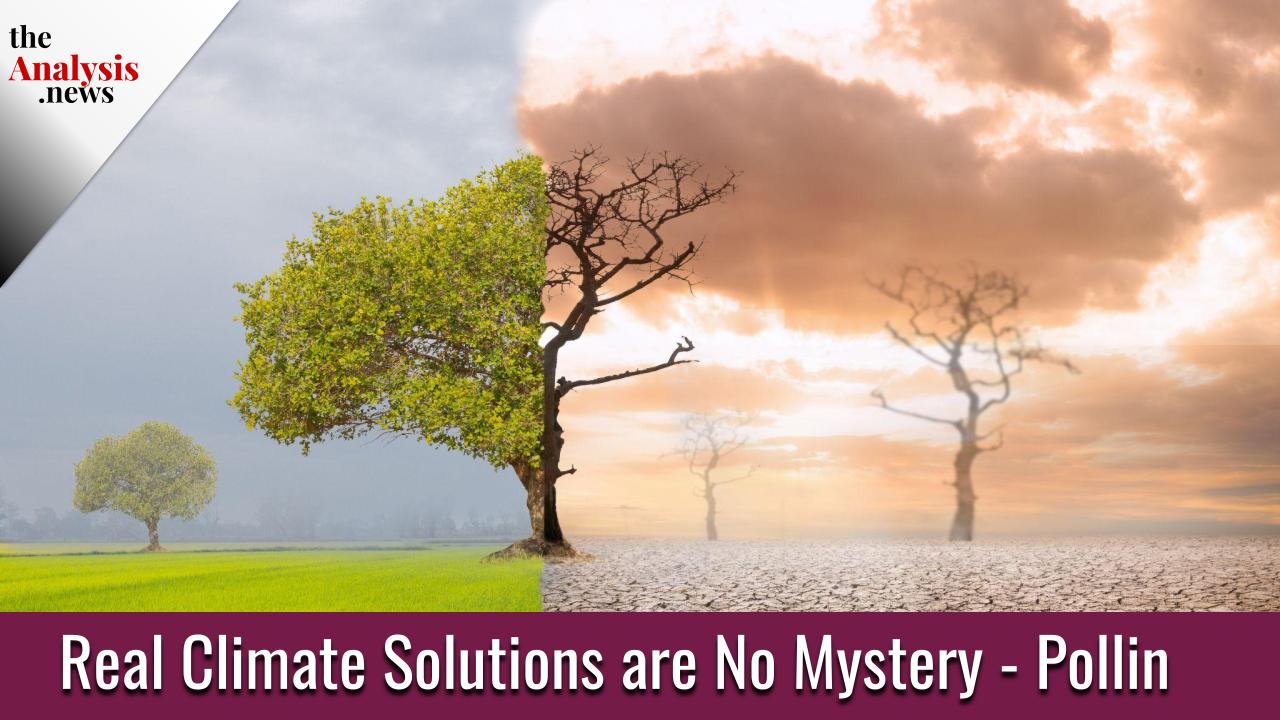

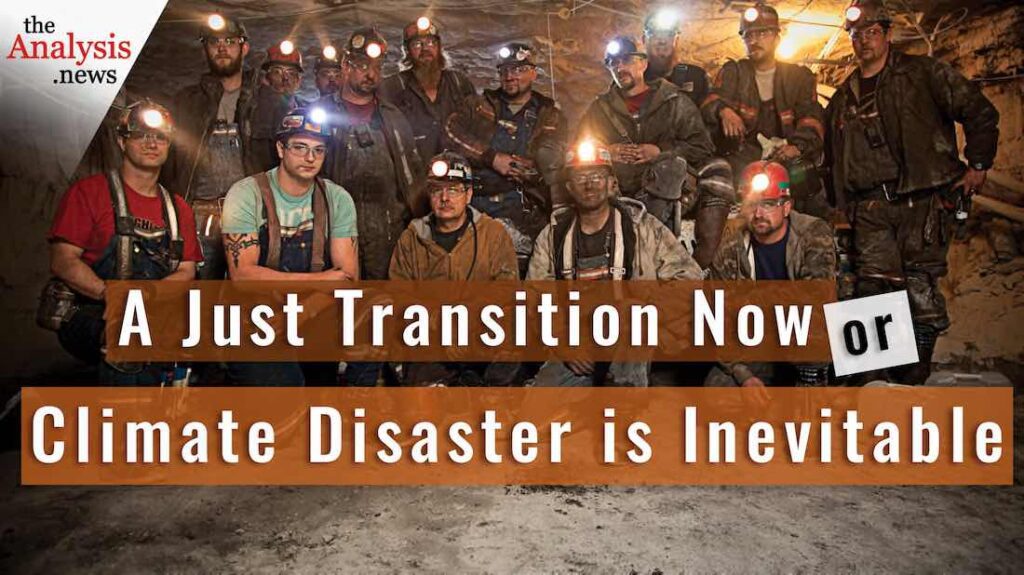


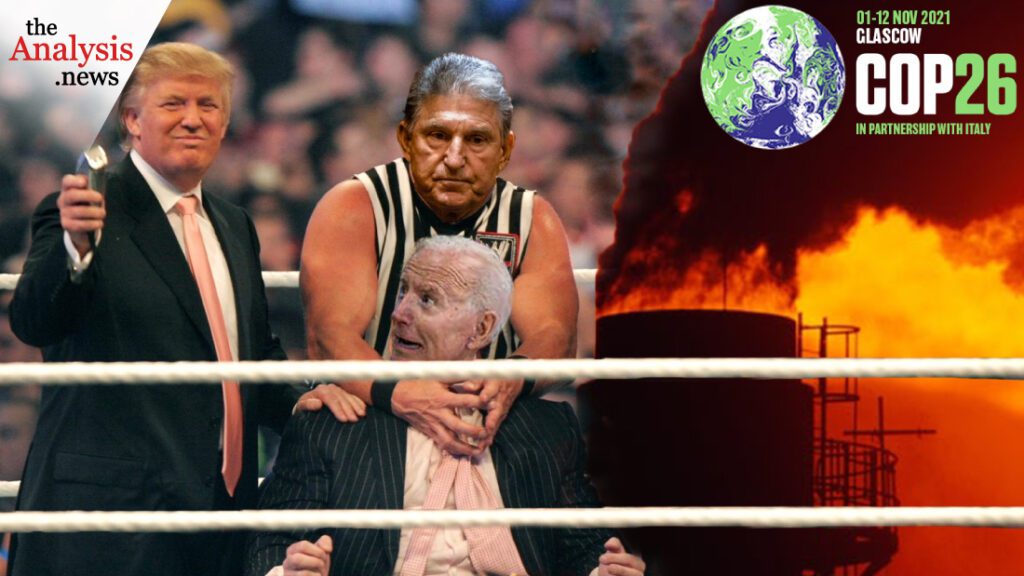


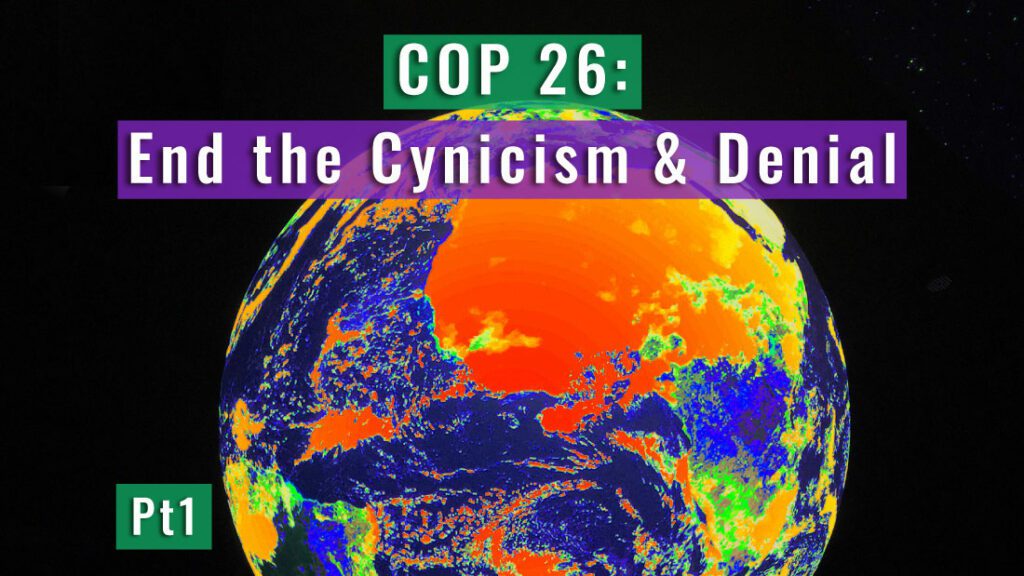
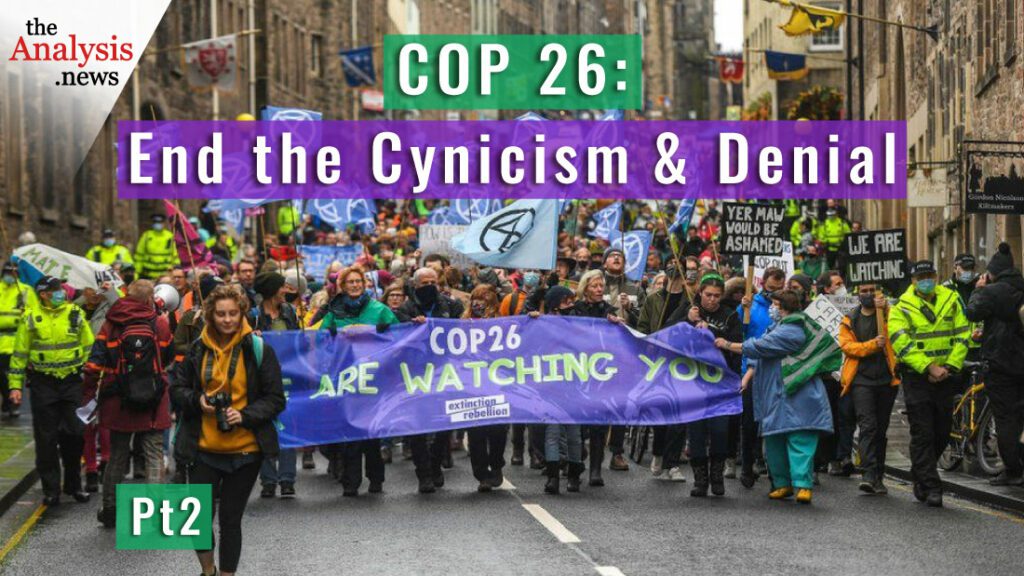

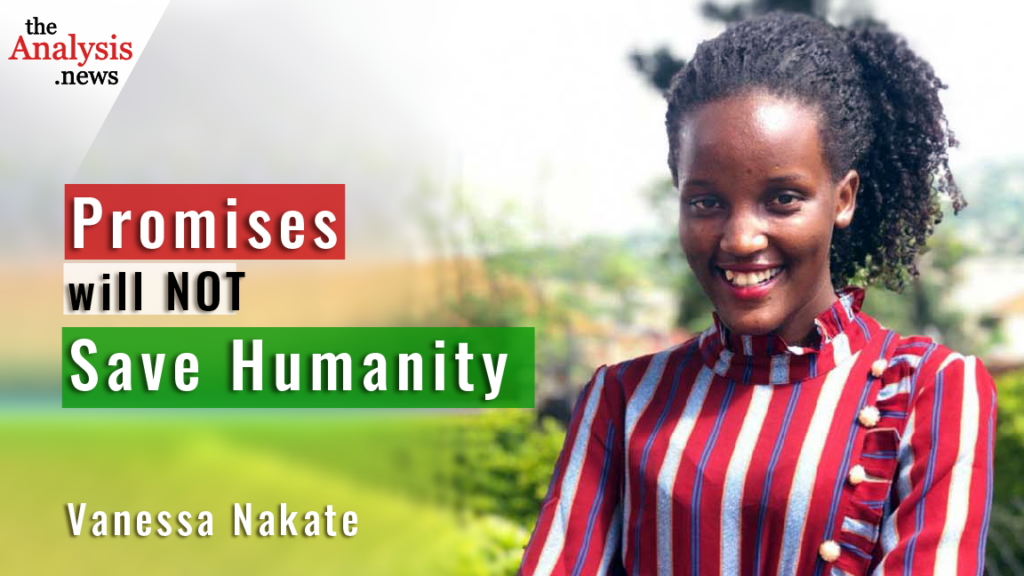



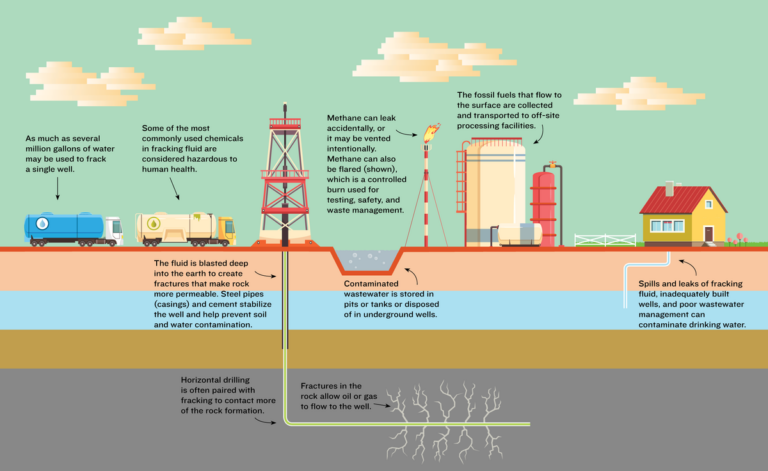
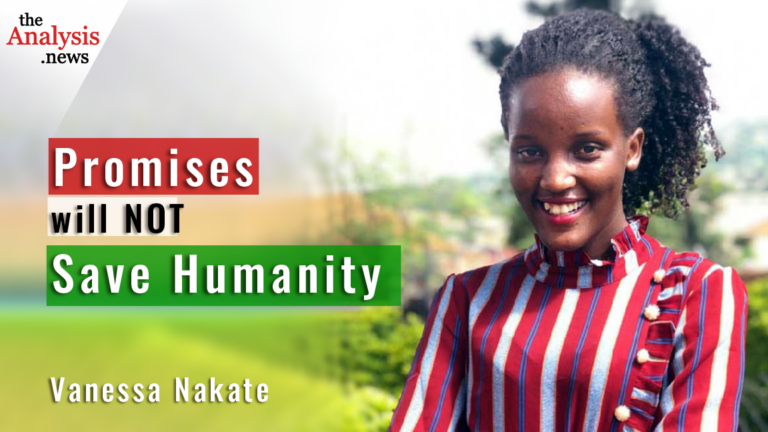


One of the most informative interviews about US renewable energy I’ve seen in a long time:
(Wisconsin Citizen’s Utility Board @ MREA 2022)
https://www.youtube.com/watch?v=-BM3ctx_VPk
…also
WI C.U.B. “The State of Utility Consumer Advocacy” w/ NASUCA Executive Director David Springe:
https://www.youtube.com/watch?v=RyzzlUi4PjE
All of the folks in these interviews are likely excited to do interviews, and are probably technologically well suited to do so.
Paul – as it says below the screen – “what needs to be done is well known. People need to organize and elect candidates with a green agenda.”
What I don’t understand is why you seem to think we need to concentrate on the D Party to deliver that agenda, at least here in the states – indeed “prog” Dems are getting elected here and there – and their rhetoric sounds good – but the folks in control once they get elected are the machine politicians – the ones addicted to Corp money – so when push comes to shove, and i have seen it over and over (am in my 70’s), they back down and chicken out – when you attach your political wagon to the DP donkey, you have to go where the Donkey takes you, and the Donkey is following the golden carrot in front of his nose
The only Green agenda the duopoly has is getting as much Green in their bank accounts as they can –
The only hope we have is to elect honest, non-corp, 3rd party candidates, with actual Green Agendas, they are out there, although the DP especially is doing its best to keep them off ballots, out of debates and starved of funds, why don’t you do a story on that, if you really care about this stuff, – over the years i have seen you dismiss them over and over, on the Real News, e.g. why? As for “swing states” – if you think both “Ds” and “Rs” are open to, and want, a Green agenda – why not vote for a 3rd Party that actually HAS one no matter what state you live in …
When digging yourself into a hole, the first action is to stop digging. The largest user of oil is the military. The next is transportation. Our government owns and should control the military. Stop bullshit wars and cease occupying the world with 800+ bases. Our government owns the interstate highway system. Use the military savings to build a highspeed rail system next to the roads. Jet airplanes can never be made more fuel efficient. Stop subsidies for airports, air travel and private jets. Stop tax deductions for homes larger than the median size for a given area. Conservation is the quickest action and can be done in manner that would be supported by the public.